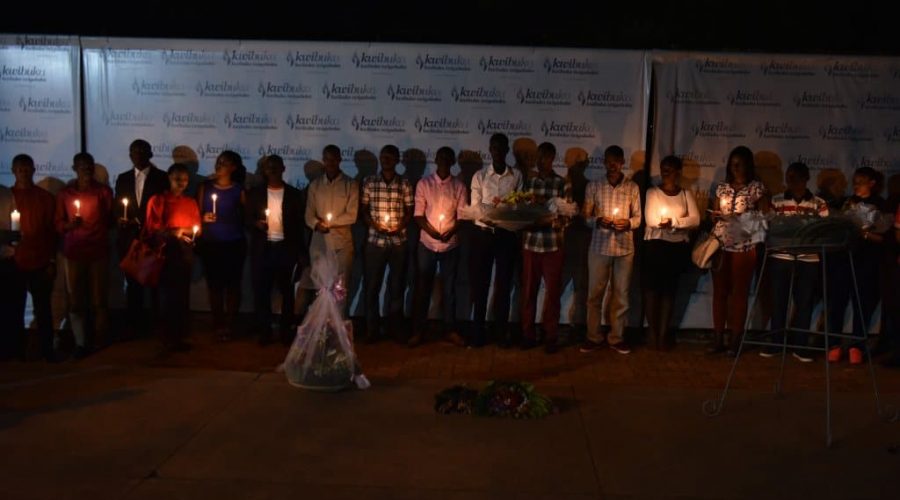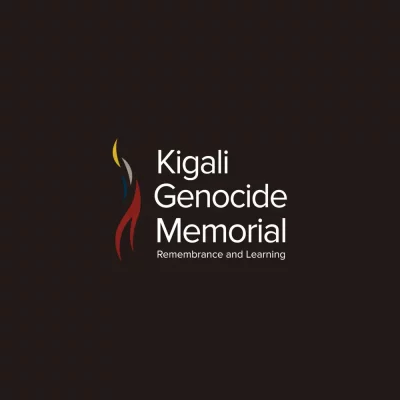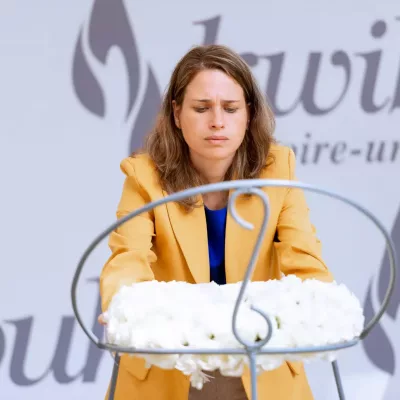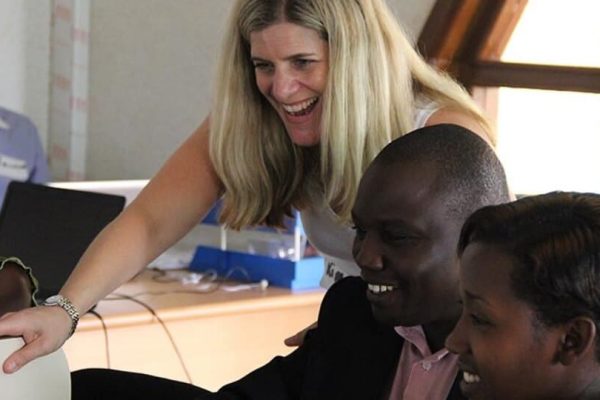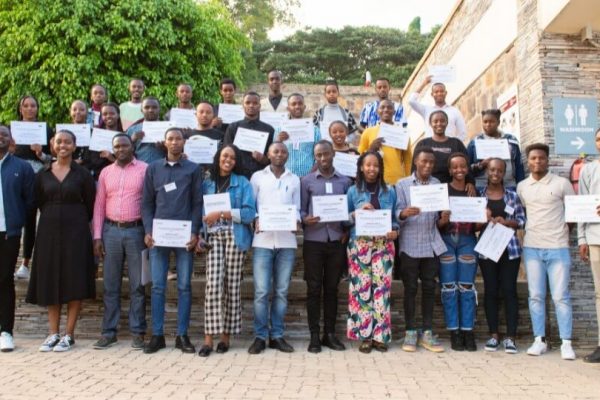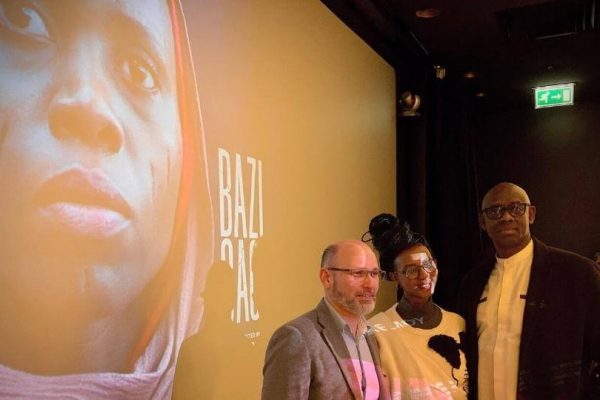On December 9th, the memorial has commemorated this day by hosting young people in discussions about personal responsibilities in fighting Genocide and its ideology. The memorial team invited participants to honor victims, welcomed a staff member to share testimony, and delivered platform for attendants to share their views. The event was themed “The Role of Young Rwandans in Global Genocide Prevention and Peacebuilding”
The Rwandan youth took a lead to participate in the event – it began the commemoration by a walk to the memorial’s burial place, where a wreath was laid then a minute of silence was observed. The young people was also briefed about the memorial’s activities.
The Aegis Trust’s Research, Policy and Higher Education Programme’s Manager, Sandra Shenge, moderated the sessions and invited the speaker, Bonheur Pacifique. He presented insights on the role as a youth to prevent genocide in his environment. As a Guide Officer at the memorial and a Genocide survivor who carries horrid memories of the past, Bonheur shared his impression about his job and its entwined mission of fighting against Genocide ideology. “Even though life changes us sometimes, I wouldn’t trade the job I do for something else,” Bonheur mentioned. “It is our duties as youth to fight against Genocide ideology by speaking and writing about genocide history and use all possible means. Although we need other mechanisms to prevent a genocide, the step begins with spreading testimony of what happened in the past.” Bonheur said.
Stressing on the possible approaches to disperse Rwanda’s history, Bonheur added: “We can use social media, we can write books, and discuss it with our friends and families. The first step to prevent genocide is to remember. If we do not do this as youth, at the end of the day we will be victims.”
Sandra Shenge also shedded light on how youth can build a Rwanda that is free from ideology by public dialogues.
“When youth are engaged in different dialogues of genocide prevention it increases their level capacity of knowing Rwandan history because we know they are still many people who are not fully aware of what happened,” Ms. Shenge said. “When they participate in these dialogues, they get a lot of chances to know what happened by testimonies and group discussions. You might be young now, but in the future you will be old and tell your children the history.” She remarked.
The participants at Ubumuntu Youth Exchange ended discussions by watching a short film about the effects of the Genocide against the Tutsi that features stories of the Genocide survivors and how their parents, families and friends were killed in 1994.
The International Day of Commemoration and Dignity of the Victims of Genocide was established by the United Nations in September 2015. It aims to raise awareness on preventing genocides and honor the victims in countries who suffered this tragic act.

